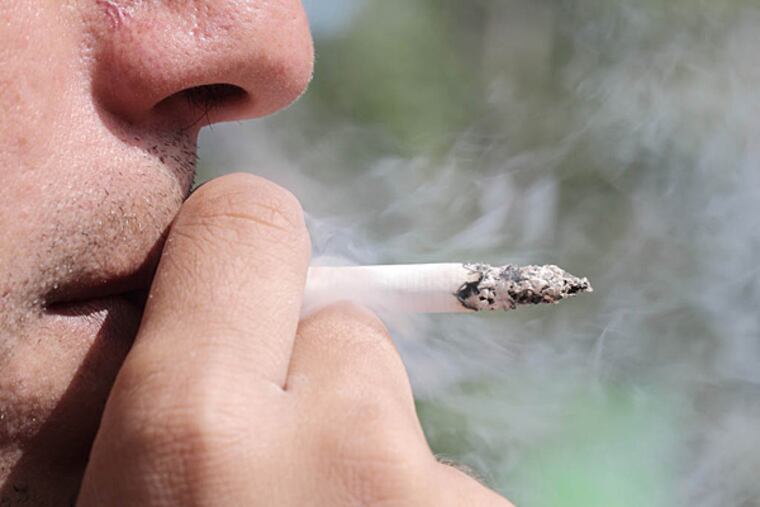
THERE WAS celebration locally last week when Gov. Corbett signed the bill allowing Philadelphia to increase the tax on cigarettes by $2 a pack.
Mayor Nutter praised the governor and the Legislature for finally taking action. Schools Superintendent William Hite added his thanks. No one did high-fives, but there was a sense of satisfaction over a mission accomplished.
The situation reminds us of the title of the 1960s novel Been Down So Long It Looks Like Up to Me.
The cigarette tax - which will raise the price of a pack by 30 percent - will provide a source of continuing revenue for the financially battered school district.
But keep in mind that after the state pulled the rug out from the district in 2011 by sharply reducing state aid, it hasn't advanced much in the way of new, additional funding.
Instead, it has allowed us - in some cases made us beg - to raise local taxes to support public education in the city.
We have been given the right to tax ourselves, both with the cigarette tax and by continuing a 1 percent add-on to the sales tax charged in the city.
Excuse us for not cheering.
In fairness, Philadelphia is not the only district to use local tax increases to fill the hole left by a decline in state aid. Many of Pennsylvania's 500 districts have had to do the same - and had to cut staff and services.
While Corbett likes to brag that he held the line on taxes during his first term, he is telling only half the story. He may have avoided increasing the state sales, income and business taxes, but he did it by shifting the burden to local governments when it came to social services and education.
Locally, although the cigarette and sales tax add-on will provide continuing sources of revenue for the district, it is not enough. Hite has said that the range of services offered by the district now is at a barely minimal level.
The district's costs will continue to rise - ironically partly because of state-mandated spending. Sooner than later, we will once again be forced to resume the sad cycle of begging for money and cutting services.
The answer to this problem is both simple and complex. The simple part is that the district needs more money to provide a sound education for its students. The complex part is getting the state to fulfill its central role in funding public education.
The situation is not hopeless. Corbett's Democratic opponent, Tom Wolf, has promised to make education funding a priority. It's clear from recent polls that many Pennsylvanians think education is the most important issue in this race.
There is also a state commission studying the linchpin of any reform: changing the state's outdated and often-ignored school-funding formula to reflect the realities of providing education in the 21st century. Its recommendations are due in June.
In the meantime, Philadelphians should tape the date Nov. 4 onto the refrigerator door as a reminder that the day is coming when they can have their say about education in the state. Nov. 4 is Election Day.